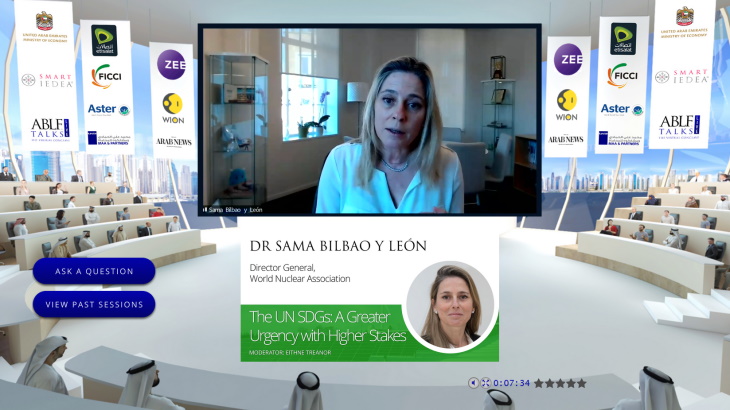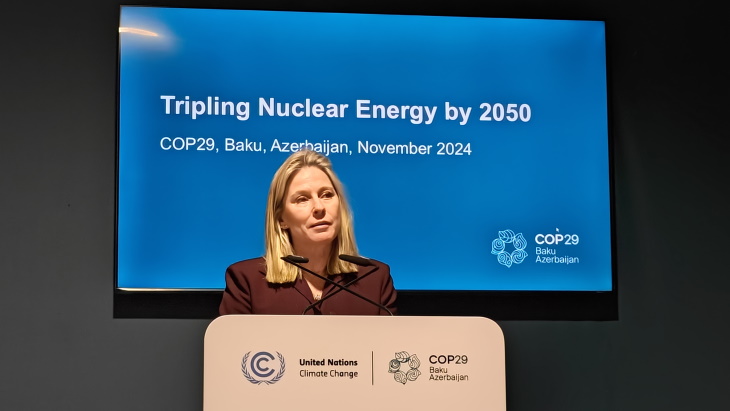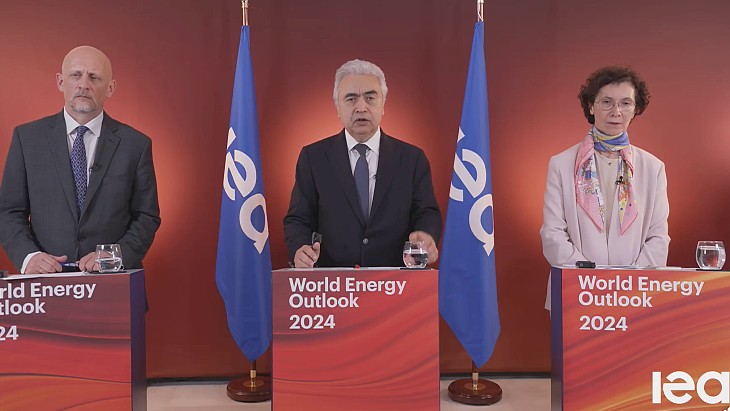Bilbao y León: Policy needs to match possibility to achieve SDGs

There are "great opportunities" for nuclear beyond decarbonising the electricity sector, she said. Its ability to produce low-carbon heat - at the same time as producing clean, reliable 24/7 electricity - opens a new set of opportunities for decarbonising difficult-to-abate sectors and industries, for example through the production of hydrogen and synthetic fuels.
Nuclear also offers great flexibility, with large-scale reactors able to bring sizeable amounts of generating capacity, and small modular reactors (SMRs) and microreactors able to adapt to smaller, more distributed grids.
The biggest challenge, she said, is to align policies, development plans and government support with the "possibilities and promise" of nuclear energy.
"If we establish a level playing field in the energy markets that eventually are going to drive investment in future clean energy infrastructure, and allow nuclear to be treated in the same way as other low-carbon technologies, we really will be able to recognise the value that nuclear energy brings," she said. These include, not only reliability, but also low-carbon, 24/7 availability; a tendency to lower costs across the whole system; and a compact footprint in terms of land, raw materials and resources.
The COVID-19 pandemic has "woken everyone up" to the fact that we live in a truly global world where everyone's actions have an impact, she said. Coming out of the crisis will be an opportunity for governments to use economic stimuli to develop and then accelerate resilient clean energy infrastructure at the global level.
On the SDGs, Bilbao y León said the focus of OECD countries had been on decarbonisation, but for many their first priority is to raise living standards and bring socioeconomic benefits to all their citizens.
Clean, affordable energy is going to be vital to meet the SDGs, she said, adding that nuclear energy provides additional benefits to human health and wellbeing. These include nuclear technology and medicine, while electrification and access to 24/7 electricity also opens up access to education. Access to large-scale, low- carbon electricity would also help countries develop industry, innovation and infrastructure, she said.
Individual countries need to select the combination of technologies and energy sources that will help them realise the SDGs, she said. It is very important, therefore, for multilateral development banks and import-export banks to develop technology-neutral policies so that countries are better able to make the right choices for themselves.
Asked how developing countries might benefit from incorporating nuclear in their energy mix, Bilbao y León said SMRs will bring opportunities for newcomer countries with smaller electricity grids, or perhaps smaller electricity needs. SMRs will also be more affordable, which will help guide smaller countries towards such infrastructure development. A streamlined international licensing regime for SMRs will also help, enabling their deployment to meet energy needs without undue delay, she said.
On the so-called circular carbon economy, which looks to use resources as effectively as possible, Bilbao y León said nuclear energy had exemplified this from its inception.
"Nuclear is a dense, concentrated energy source … we need a very small footprint, we need very few raw materials to actually extract the energy of the atom, and of course a small amount of concentrated waste and used nuclear fuel at end of cycle." She added: "As the rest of world is becoming conscious of minimising the use of resources, we can really help. With the same nuclear power plant, we can produce electricity but also heat, which is a much more effective use of raw materials."
"All low-carbon energy sources are very capital intensive - this is true of wind, solar, and nuclear," she said. For nuclear energy, some 70% of that cost is project financing, so ensuring access to affordable financing will be a "game changer". Government support and policies will be key to providing confidence, certainty, and a stable policy framework for investors, whether private or public.

_99697.jpg)










